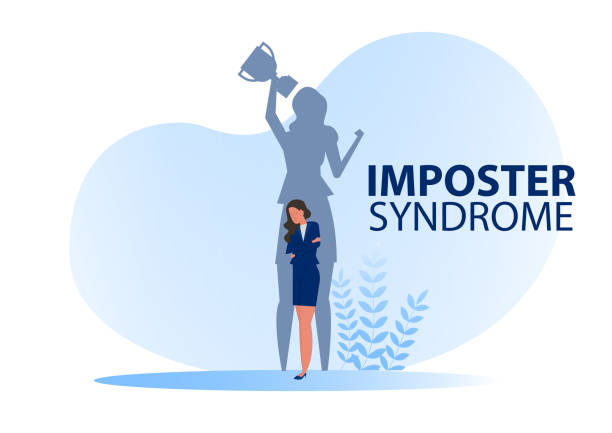IMPOSTOR SYNDROME AT WORK AND THE WAY FORWARD
Have you ever felt you are not good enough? Do you feel you don’t deserve your little or great wins? this is a glaring phenomenon of impostor syndrome.
There is still a huge lack of knowledge and awareness about Imposter Syndrome despite how prevalent it is. Studies have shown that even with years of experience, some adults still feel incompetent at their workplace, only a very small proportion of the sufferers know that their distress and fear may relate to Imposter Syndrome.
In a report by International Journal of Behavioral Science, it was stated that 62% of global employees are affected by workplace imposter thoughts at some point in their lives. Some imposters have perfectionist tendencies, when they are unable to fulfil their perfectionist goals, they often feel overwhelmed, disappointed, and overgeneralize themselves as failures.
Imposter Syndrome is a type of self-denying thoughts and feelings that one’s own accomplishments arise from by chance or luck rather than because of their competencies and are often struck by fear of ‘being found out’ as not being that competent.
Here are some ways Imposter Syndrome can manifest
- Self-doubt.
- Agonizing over little mistakes and second guessing every decision.
- Inferiority complex i.e. the feeling that your colleagues are better than you.
- Inability to accept praise because of the feeling that you are not good enough, even when everyone says you’re doing well.
- Avoiding feedbacks due to self-doubt imposter ignore or push away positive feedbacks.
- Reluctance to ask for help because of the fear of being seen as inexperienced or untalented.
- Turning down new opportunities because of fear of failure.
- You are convinced that your achievements are based on luck, timing, or other factors out of your control.
Impostor syndrome can lead to procrastination due to lack of believe in one’s ability and if precaution is not taken, it can affect productivity at work, career, relationships, and the health of the individual involved.
Ways an employer can deal with impostor syndrome among employees.
- Recognizing accomplishment and commendation
Recognizing accomplishment and encouraging team members is imperative to building confidence in a workspace. Self-doubt is one of the most harmful effects of imposter syndrome. As employers, managers or team leads, one might not feel the need to commend a colleague for a job well done, besides it is their job and they are getting paid for it so why should you have to applaud their them for a job well done?
Self-doubt can trigger someone with imposter syndrome to withdraw from their coworkers or work-related activities and some might even overwork themselves and not actually achieve much but commendation from superior at work can be a confidence booster.
- Clear communication and proper onboarding
This makes employees feel comfortable speaking up without fear of being attacked or seen as incompetent. It can be intimidating for new hires to ask questions, that is why a proper and physical onboarding is important because it affords new hires the opportunity to get familiar with team members and coworkers. Without proper onboarding especially when done remotely, it can be difficult for a reserved team member or someone with imposter syndrome to overcome that initial communication hurdle.
- Positive and constructive feedback
Often, impostor syndrome is not based on the reality of a situation. As manager or team lead, if you’re worried a team member is experiencing impostor syndrome, it can be challenging to offer feedback since you might feel like you’re feeding their fear. That is where positive and constructive feedback helps team members get a better sense of how they’re doing.
- Support their career growth interests
Impostor syndrome comes in inform of self-doubt, ‘The feeling that they are good enough at what they’re doing’. The best way to combat this as employer is to engage with your team members. Showing your team member that you believe in them and are invested in their career growth reinforces that they’re good at what they’re doing.
Conclusion
Impostor syndrome can have far-reaching consequences for an organization especially in situations where individuals with great potentials are under performing or holding back on innovative ideas out of fear, self-doubt. Though it still boils down to individual to take the bull by its horn and believe in themselves. But as employers, managers, it is imperative to create a safe space to learn and talk about Imposter Syndrome this will improve productivity and team performance and can also improve overall mental wellbeing of employees and team members.
References
International Journal of Behavioral Science
Asana.com/resources/impostor-syndrome.com
